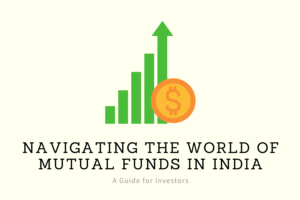How Awful Is It If I Don’t Pay off My Credit Card on a Monthly Basis?

It is so easy to get into debts. But is not true that it is also so hard to get out them? It is important to try your level best not to get into debts. If circumstances compel you into borrowing, comparing loans and have the one with favorable terms. Why? Because a loan is an obligation that comes at a cost. In our discussion today we will focus on a specific type of loans – credit cards. Do you use them? What is your experience with them? Well, one common feature of credit cards is that they always have high-interest rates. I personally do not like to use them because you only postpone payments at a cost.
Like any debt, credit cards are supposed to be paid right in time. Failure to do that attract penalties and fines. What is more, your credit score may be damaged if you do not pay within the stipulated time period. It is just so had to improve credit score and that is you have to avoid doing anything that is likely to put it into risks. But what exactly happens when you do not pay your credit cards? This is where our focus is directed but before then let us see how credit cards work.
How Credit Cards Work
Just as the name suggests, you are allowed to spend on purchases but on credit. It is more like you are given a loan worth the amount spent. There is always a set-limit within which you should operate, though you can spend beyond this limit in some cases. It all depends on the level of confidence the credit card company has on when it comes to repayments.
If you settle the bills in full as they fall due, you will be relieved from paying the interest on the borrowed amount. Nevertheless, some companies allow for cash withdrawal and, in this case, the interest payment is a must. It often accumulates on a daily basis and that is why it is important that you pay as early as you can. Important to note, the interest charged on cash withdrawals are often higher compared to purchases. Failure to pay the balance within the agreed time attracts interest charges. Besides, interest is often backdated. This means that if you had purchased at the beginning of the month, interest will accumulate across the month.
Do you think credit cards are good for you? Well, there a number of things that you need to consider. For instance, you have to know that you will be required to make payments on a monthly basis, even if you are on interest-free time. On application, the company will have to asses before approval. Like in other forms of borrowing, your credit score plays a significant role. You may be able to access better offers when it comes to interest rates along with other promotions. Besides, you must have attained the age of the majority for qualification. Now back to the question raised at the outset – But what exactly happens when you do not pay your credit cards? Let us see…
What Happens When You Do Not Pay Your Credit Cards?
It is easy to borrow but so hard to repay. In fact, you need to be extremely careful for you not to fall into more debts than you can borrow. In the beginning, your limit will be low. However, it will keep on increasing to the extent that overcharging appears tempting. It is always hard to pay credit cards because the interest always enlarges as the balance increases. This, in turn, increases payments. If you are not careful, you end up remaining with a very limited amount for other purchases at the present as well as in the future. The following things happen when you don’t pay your credit cards:
- A single payment :
Before anything, we want you to know that failure to pay the full amount, even just by one dollar, is considered a missed payment. So, then what happens? In most cases, you will have to pay a penalty that may range between $25 and $35. Again, remember that this amount is added to your outstanding balance. This means it will also start accumulating interest. This might not be a very damaging effect. There are other things that can happen. For instance, you will definitely damage your credit history. Besides, the interest rate on the outstanding balance will upsurge. These two are very damaging compared to a late payment. In addition, if you were entitled to a special interest, you are likely to miss it. The question that arises now is: can a single missed payment detriment your score? Well, it will depend on the card provider. The company can choose to forward your details to the credit bureaus or allow you some time to try and repay. If you are reported to the bureau, your score will be affected.
- Missing two payments :
Now with these things are getting messy. Another penalty of between $25 and $35 will be added to your outstanding balance. Here it is very likely that you will report to the bureaus. The period taken before borrowers are reported to the bureaus depends on the credit companies’ policies. Some will allow borrowers a period of up to 60 days while others will wait for 90 days. The effect will, however, be very bad. A number of financial analysts are of the opinion that a 60-day late payment will lessen your credit score back to 110 points, which is a decrease of 60 points. This implies you will have to be charged higher rates on subsequent borrowings. Nonetheless, if you manage to repay before the 90th day, the negative report on your financial will vanish after two years instead of 7 years. Also, your details are likely to be submitted to a debt collection agency.
- Six months of late payment :
Too bad for you. It means you have accumulated late payment penalties for a total of six months and this is a huge amount. Your credit score is significantly damaged and shows a lot of missed payments. With this, it can be very hard for you to even borrow for longer. After this time the company charge off the outstanding balance and gives it to a collection agency. This means your credit company has given up on you and now there is a new creditor with all the rights to make collections from you.
- After many years :
The good news is that the debt can be forgiven. Also, the late payments will fade away from your history of credit. This is because of debt provision by law. However, time may range from 3 to 10 years.
Conclusion
What happens when you do not pay your credit cards? We have seen a lot of negative things can actually happen. Do not allow yourself to go through this. If you anticipate that you are likely to miss a payment, consider talking to your lender like Bugis Credit for other arrangements.






